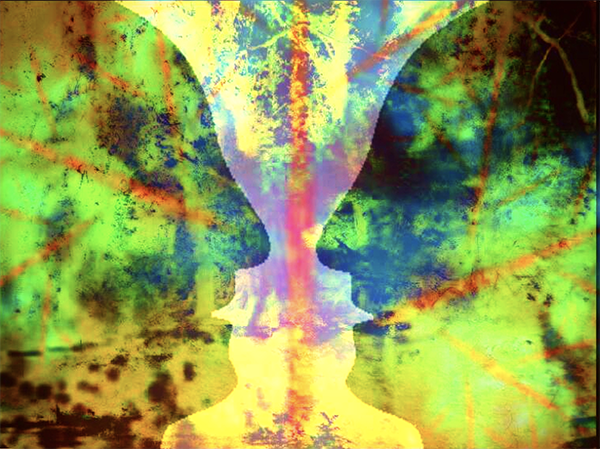Understanding Dissociation
Dissociation exists along a continuum from normal everyday experiences to distress and ‘disorders’ that interfere with everyday functioning, sometimes causing great distress. Dissociation is a disconnection from full awareness in the present of self, time, and/or external circumstances. It’s quite a complex process.
We all dissociate at different times and in different ways. Everyday experiences of dissociation include:
- Day dreaming
- Becoming absorbed in a focused activity
- Being lost in thought
- ‘Drifting off’ temporarily
- The dreamy state between waking and sleeping
- Intentional self-soothing, self-hypnosis
- Deep relaxation
- Temporarily ‘putting yourself somewhere else’
- Dissociation and Trauma
When a person experiences an event or incidents that are overwhelming, terrifying, and they are unable to defend themselves, fight back or run away, the only self-defence or survival option they have is to dissociate .
Dissociation is a self-protective survival process that maintains mental and physical stability –enables removal from pain, fear, trauma
Continuing to dissociate after a traumatic event enables avoidance of the memory and its devastating impact
In its extreme form – Dissociative Identity Disorder – a person’s dissociative experiences are still considered controversial. Dissociative distress is frequently misunderstood and historically has been misdiagnosed by doctors, psychologists and others.
MIND has published an excellent booklet describing Dissociation and Dissociative Disorders.
See: https://www.mind.org.uk/media-a/2936/dissociation-and-dissociative-disorders-2019.pdf
Dissociative Experiences include:
Depersonalisation
Depersonalisation is when a person:
- Experiences her/himself outside of their body as if they were watching someone else.
- Feels no control of what they are saying. They may know what they are saying, but cannot control it.
- Experiences their body in a distorted way (e.g., smaller, larger), or as not belonging to him or her.
- Does not recognize family or good friends or their environment (e.g., their own home or workplace etc).
Non-Realisation
Non-realization is the inability to grasp essential aspects of external experience that rightly and factually belong to our past, present, and future; our self; and our inner experiences, such as thoughts, physical actions, sensations, memories, and emotions.
There are many ways people can experience non-realisation.
Non-realisation can be mild, moderate, or extreme, and related to simple daily experiences or catastrophic events. It can manifest in some areas of life and not others. It can range from minor momentary lapses to major amnesia—complete non-realization (Janet, 1945).
Dissociated Experiences of ‘Self’, ‘Identity’ and ‘Personality’
We frequently talk about self, identity, and personality as if we all share an understanding about the meaning of these terms. In reality, we don’t. In reality, there is no consensus about what ‘self’ ‘identity’, and ‘personality’ are or are not, nor are they actual ‘things’ that can be clearly identified. The terms are metaphors that we use to convey a sense of who we believe ourselves to be to others and to ourselves in time.
Of course, we do not actually have a ‘self’ in the way that we have or inhabit a body or body parts, but we are meaning-making beings. Each of us lives within our body, and our minds create a continually evolving narrative or story about who we are. Most of us can frequently be inconsistent, or contradictory, and have a sense of different parts, self or ego states. However, usually we maintain a coherent sense of ‘I am.’ For most people this is what we call our “self.”
Complex Dissociative Identities
‘Complex dissociative identity conditions are common in those who have experienced protracted repeated trauma, of a severe or extreme nature, that started in early childhood. The associated trauma is usually childhood abuse, (sexual, physical, emotional, spiritual) and/or neglect, but may be other childhood trauma, e.g. recurrent invasive medical procedures; prolonged or repeated illness of a parent or other primary caregiver.’ From https://www.firstpersonplural.org.uk
People with dissociative difficulties or disorders may subjectively experience their selves and parts of their personality as fragmented parts or separate identities, sometimes called alters. These fragmented parts can often be experienced as outside of the person’s awareness or even control. They may describe themselves as ‘first person plural, or as a ‘multiple’.
Dissociative Disorders
Complex dissociative identity distress and disorders are possible long term consequences when children are subjected to repeated abuse or other traumas from a very young age, particularly when the trauma is extreme and continues over several months or, more commonly, years.
A traumatised child may effectively use the universal, instinctive, human, coping strategy of dissociation to survive the horrors and terrors of their life. When this survival strategy has to be used frequently and/or over an extended period during the time when the child’s brain and personality is rapidly developing, dissociation shapes the way the child’s psycho-neurological systems develop leaving them at risk of experiencing one of the complex dissociative identity disorders in adulthood or adolescence, whether or not they are currently subject to ongoing trauma.
GP Referral for Assessment
If you have concerns that you are experiencing serious dissociative difficulties, it is a good idea to talk to your GP about the possibility of being referred for an assessment at the Clinic for Dissociatve Studies.
https://www.clinicds.org.uk/for-patients/




